Home / PROP FIRMS / WHAT ARE PROP FIRMS
Table of Contents
What Are Prop Firms? An In-Depth Guide to Proprietary Trading Firms
If you’ve spent any time in the world of trading—whether it’s forex, stocks, or even crypto – you’ve likely heard the term “prop firms” tossed around.
But what exactly are they?
As a seasoned expert in the financial markets, I’m here to break down what prop firms are, how they operate, and why more and more traders are gravitating toward them in 2025.
What Is a Prop Firm?
A proprietary trading firm (or prop firm) is a financial institution or organization that uses its own capital to trade in the markets.
These firms provide traders with the opportunity to trade using the firm’s capital, as opposed to their own.
This is done in exchange for a percentage of the profits generated by the trader.
Essentially, prop firms act as a bridge between independent traders and the financial markets, offering a way to trade without the massive risk of using personal funds.
Unlike traditional brokerage accounts, where you’re trading with your own money, a prop trading firm allows you to trade with leverage provided by the firm. In return, you share a portion of your profits with the firm.
This arrangement can be incredibly attractive for skilled traders who may not have the capital to trade large amounts on their own but still want access to institutional-level liquidity and resources.
Key Benefits of Joining a Prop Firm
Prop firms offer several advantages that attract both beginners and experienced traders alike:
- Capital Allocation: You’re trading with the firm’s money, so there’s no need to risk your own savings. This is one of the major attractions of proprietary trading firms.
- Leverage: Most prop firms offer significantly higher leverage than retail brokers. This means you can control larger positions with a smaller investment.
- Risk Management Support: Many prop trading firms offer strict risk management rules, which can help prevent significant losses.
- Access to Professional Tools: Many firms provide professional-level trading software, data feeds, and other trading tools that are typically out of reach for individual traders.
- Profit Sharing: In exchange for using the firm’s capital, traders typically share a percentage of their profits. This can vary from 50% to as high as 90% or more, depending on the firm’s terms.
- Trading Education: Many prop firms offer training programs and mentorship to help traders refine their skills.
How Prop Firms Work
Prop firms work by hiring or partnering with traders to manage the firm’s capital in various financial markets.
These firms usually have their own unique process for onboarding traders, often requiring an evaluation period where traders need to prove their skills before being entrusted with significant funds.
Most prop firms have specific conditions, including:
- Evaluation: Traders usually start with a demo or small live account to prove their skills. If they meet the required targets and adhere to the firm’s risk management rules, they get access to more capital.
- Profit Sharing: After passing the evaluation, traders are given a live account and are eligible to share in the profits. The split is usually 50-80% in favor of the trader.
- Risk Limits: Traders must adhere to strict risk management rules to ensure that they don’t blow up their accounts. Most prop firms have daily drawdown limits and maximum loss thresholds.
- Account Scaling: Some firms allow traders to scale their account size over time based on performance.
Popular Types of Prop Firms in 2025
There are various types of prop trading firms specializing in different markets.
Some focus exclusively on forex, while others deal with stocks, commodities, or cryptocurrency. Here are some of the most popular prop firms in 2025:
- FTMO – Specializing in forex, FTMO offers traders the opportunity to manage up to $200,000 in capital after passing their evaluation.
- Topstep – Focused on futures and forex, Topstep offers one of the most popular programs for traders to prove their skills and earn funding.
- The 5%ers – This firm focuses on forex and provides a lower entry barrier with profit sharing opportunities from the first day of trading.
- OneUp Trader – OneUp Trader offers a flexible evaluation process, focusing on futures trading and risk management.
Prop Firms vs. Traditional Brokers
One of the key differences between prop firms and traditional brokers is that brokers offer access to markets with personal capital, while prop firms provide capital to traders.
This means you don’t need to risk your own money, and the firm benefits from your success.
Prop firms typically focus on higher leverage and larger risk management strategies. They also offer profit-sharing opportunities, which brokers usually don’t. Brokers offer access to retail accounts and are often limited in terms of leverage and trading conditions.
Why Traders Prefer Prop Firms
- No Personal Risk: Traders only risk their skills and time, not their own capital.
- Higher Profit Potential: Due to the higher leverage, traders can potentially earn more with smaller capital investments.
- Access to Better Tools: Many prop trading firms provide institutional-grade tools, charts, and data.
- Structured Environment: Prop firms have strict guidelines and rules, which can help traders stay disciplined and focused.
Useful
FAQs
1. What is a prop firm?
A prop firm is a trading company that provides capital to traders in exchange for a share of the profits.
2. Do I need to invest my own money?
No, prop firms provide the capital, and you trade with their funds.
3. How do I get started with a prop firm?
Typically, you’ll need to pass an evaluation or demonstration period to prove your trading skills.
4. What is the profit-sharing split?
Profit-sharing splits can vary, but traders generally keep 50-90% of the profits they generate.
5. What are the risks of joining a prop firm?
While you don’t risk your own capital, you must adhere to strict risk management rules, or you may lose access to your trading account.
6. Can I trade forex with a prop firm?
Yes, many prop firms specialize in forex trading and offer traders the ability to trade currency pairs.
7. Are there any fees associated with joining a prop firm?
Some firms charge an evaluation fee or a monthly fee, while others may have a profit-sharing structure.
8. How much capital can I access as a trader?
Depending on the firm, you may start with a few thousand dollars, with the potential to scale up to $100,000 or more.
9. Do I need a lot of experience to join a prop firm?
While experience can be helpful, many prop firms offer demo accounts and training programs for beginners.
10. What happens if I break the risk rules?
Breaking the risk rules usually results in a loss of access to the funded account, and sometimes, being removed from the program.
Looking for the Best Prop Firms?
If you’re considering joining a prop firm and want to explore the best options for 2025, check out our Best Prop Firms page for a comprehensive comparison of the top-rated companies that offer funding opportunities.
This guide provides a solid foundation for understanding the ins and outs of prop trading firms. Whether you’re a seasoned trader or just getting started, joining the right prop firm can unlock significant opportunities for growth and financial success. Keep in mind that the best firms for you will depend on your trading goals, risk tolerance, and preferred markets.

Robert Grenickiy
Author,
leading expert at FBX
Robert has been working in financial market valuation and analysis since 2008.
Years of experience and deep immersion in the topic give us every reason to trust his expertise.


